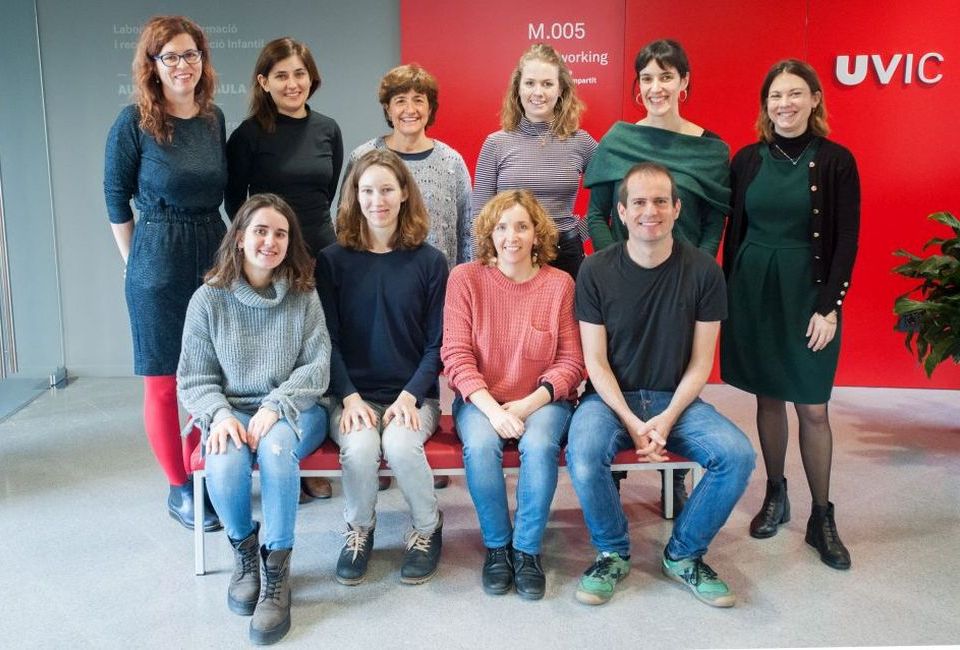
Researchers at UVic-UCC develop a best practices guide for teachers to reduce early school leaving in post-compulsory education
The Centre for Interdisciplinary Gender Studies (CEIG) at UVic-UCC has just launched Crossroads, a European research project that fosters the exchange of social and educational practices aimed at reducing early school leaving, i.e. students dropping out of post-compulsory education, such as higher secondary education vocational training programmes, and university, after completing secondary education. The project will provide methodologies and share similar experiences to respond to this problem that have been developed in other European countries, which is mainly due to the impact of various factors of inequality such as gender, origin, social class, ethnicity and gender.
The coordinating team, made up of researchers from various UVic-UCC research groups, consists of Gerard Coll-Planes of GETLIHC, Mar Binimelis-Adell of TRACTE and Núria Simó-Gil of the GREUV. The CEIG director and researcher Gerard Coll-Planas and Gloria García-Romeral are coordinating this project, with partners in Croatia, Poland, Belgium and Spain.
The ultimate objective of Crossroads is to produce a guide of best practices and a range of tools and methodologies that will be made available to teachers, aimed at empowering young people in different situations of risk to enable them to continue their post-compulsory education. The research team will carry out four different initiatives to achieve this: internal training to assess the procedures and exchange learning; a project with teachers and at-risk youth groups to obtain first-hand knowledge of the various experiences and stories behind early school leaving; a seminar on best practices, and various activities to disseminate the results in the four participating countries.
The UVic hosted the launch meeting for the project last Thursday and Friday, which was attended by representatives of all the member partners to begin work. Jordi Collet, the Vice-Rector for Research and Knowledge Transfer at UVic-UCC, opened the symposium of this project, which is coordinated by the team at the CEIG, and led by Gerard Coll-Planas.
Crossroads is being financed by the European Commission's Erasmus+ call, and is scheduled to continue until October 2021. The project is linked to the Camins mentoring programme, which promoted successful educational histories among young girls of Moroccan extraction in the Osona region, and ended in 2019.
Early school leaving in Catalonia
According to IDESCAT (2018), the percentage for early school leaving is higher in Catalonia (17%) and in Spain (17.9%) than the European Union average (10%). As far as the causes are concerned, Núria Simó explains that "various studies show that there are factors associated with the cumulative nature of academic failure which the education system renders chronic among students who do not successfully complete compulsory education, since repeating school years and streaming by level have been shown to be ineffective solutions." Simó highlights the lack of inclusive options in compulsory education: "It isn't working when almost 20% of young people are expelled or do not reach post-compulsory education. These situations have an impact on the subjectivities of young people who experience schooling as an insurmountable obstacle or school as something that they cannot relate to."
Gloria García says that the solutions are very complex: "More engaged education policies are needed, because the countries that have reduced their rates of early school leaving have made a clear commitment to investing in education within more inclusive education systems. The message must also clearly be conveyed that early school leaving is not an individual problem for the boys and girls who leave, but instead there are factors linked to young people's experiences in their educational careers that we can improve, and we have a responsibility and a lot of work to be do in this respect."